Transcript

Welcome to Get Yourself Optimized! I’m your host, Stephan Spencer. Today, we have Aaron Hagedorn on and he’s going to be talking with us about survivalism and prepping and how to prepare for the zombie apocalypse, or just an earthquake, or some other natural disaster, and just how to look after ourselves and our loved ones. Aaron is the host of the In The Rabbit Hole podcast, which has been around for, well, let’s see, over five or six years now as it’s been around since 2010. Aaron makes survival sane and approachable. His podcast, In The Rabbit Hole, is a weekly, humor-filled survivalist podcast. He’s the former professional sidekick and marketing director to eight-time bestselling author, Neil Strauss, who is the author of The Game and Emergency, which is a book about survivalism. It was actually through Neil that I met Aaron and we’ve been good friends and colleagues for the last several years since that introduction. So, welcome to the show!
Thanks, Stephan! It’s really nice to be here!
So, let’s start with a little bit about your background in survivalism. How did you become an expert on how to prepare for the zombie apocalypse?
Well, I wouldn’t call myself an expert. It’s kind of bad luck in the survival industry to call yourself an expert because you’re never really an expert until you’re completely gone, I guess. My journey started like a lot of people-I was always really in the industry. I was always really an outdoorsy kid. I always had a love of, I guess, zombies, guns, knives, and all the other things that little boys tend to love. Oddly, I went on and grew up and went to college to study architecture. My first real job out of architecture school was when I worked for one of the largest energy companies and the energy producers in the country and interestingly enough, they’re extremely concerned with security at the time where there was a lot of concern around eco-terrorists. There’s always the concern for threat, it’s part of our major infrastructure as wherever you are in the world-mostly, in the United States and developed countries-we flip a switch and we expect the electricity to come on and the chaos ensues when that doesn’t happen to varying degrees.
Same way with water or wastewater or anything else. I was a rather, I guess, a creative kid, and somebody took notice of that and put me on a committee for preparedness, disaster, and in dealing with emergencies. A lot of what we would do in this committee would be to wargame everything from very simple small things to very large attacks on any of the facilities be it in the nuclear power plants, be it on the corporate tower itself, or anything like that. That kind of on-a-weekly-basis, sitting down in a round table, thinking, “How do we blow up our own building?” and then, “How do we turn around and defend against that?” kind of got me into the mindset and when you spend much time doing that, you start to realize how fragile society is and how fragile our security is in general. Doing that for a while really kind of drove it home for me and that’s where it started. With Y2K, everybody got a little ramped up and that made me personally stop and think, “Wow, if the zombies’ march tomorrow,”-I don’t know what zombies have to do with Y2K-but if they did, I would not be prepared so I started a little bit there.
To touch back for a second with the energy company, the chairman of this committee, one day, he and I were sitting in his office and he got this kind of faraway look in his eye and he said, “You know, the only thing I’ve never been able to figure out how to defend against is some kind of attack like, somebody ramming a plane into a building. If they took an intercontinental, large plane and just rammed it into a building, there’s nothing we could do about that and it really bothered him. At the time, I thought, “That’s kind of farfetched!” It was about a year to the date later, that I was taking some additional courses at the University of Houston and walked out and then, we had 9/11. There it was on TV. So, these things do happen-big and small. We can all have issues in our daily life where little things happen that we’re not expecting and we’re not prepared for so it doesn’t just have to be the zombies, it can be little things too. The little things in life that impact our lives personally.

Well, what would be some of those things? So, let’s say, you are driving cross-country or just driving up into the mountains on a ski trip, what sort of things do you need to have in your car in case something happens like, if you run out of gas or your engine stalls? What are the things you need to have when you’re going on a flight? What would be some of the everyday sorts of essentials?
I would say the first essential is knowledge and skills-they’re weightless, they’re effortless, and most of the time, they’re fairly easy for procure. Driving cross-country-so, you know how to change a tire. Changing a tire, for the most part, can be done by just about anybody be it a small, 100-lb. person all the way up to 200-lb, muscle-bound whoever can change a tire-it’s not that hard and it takes a few minutes. Oddly enough, I had to walk out and change a tire in my own driveway the other day. I was expecting to be somewhere on time and instead had a 15-minute ordeal of changing a tire but luckily, it was a 15-minute aggravation rather than waiting two hours for AAA or some other service to come and change my tire for me because I don’t know how to do it so it’s simple things like that. Skills and knowledge will always be better than the gear itself and that’s something I really like to drive home a lot. Gear, really, should only ever extend the skill. There are some things that cannot be done without gear but at the end of the day, gear and equipment can only extend an existing skill. If you don’t know how to use the gear, it’s useless to you. I was speaking to someone recently and they had a great point which was, “You could be the most prepared prepper ever and have an entire catalog of antibiotics but if the zombies march tomorrow and you need antibiotics because you have an infection and you don’t know what antibiotics to use, that amazing store of antibiotics are useless to you,” so that might be a good example.

Mm-hmm.
So, there are skills and knowledge. And then, it becomes simple things, being aware of the situation and things that could go wrong. For most basics, wherever you go, are going to be cash on hand-anything from $20 in a wallet to a few $100 that are mostly in small bills. Weird things can happen to your credit cards and cut those credit cards off so you never want to be totally dependent on it. I always like to carry enough cash on me to be able to spend at least a night in a decent hotel and buy at least three meals, that’s kind of the way I judge it. That became an easy way for it to be relative to people’s individual finances-how much cash they carry around with them so, cash is really big.
What about perforated pieces of silver that you can break off and use as currency?
I think it’s an interesting idea but I think, it starts to go a bit deeper down the rabbit hole than most people want to go. So, it’s one of those things that’s out there. If it’s interesting to someone and if they’re going to be traveling internationally or something like that, or if they have already secured the most basic stuff then they can start moving on to the more dramatic things. It’s typically how I like to position it. Perforated silver, carrying around silver, getting into gold, and things like that, I think of them as being the sort of deeper, proper topics that-and this applies to a lot of things, people want to jump deep down the rabbit hole before they’ve really even kinda tiptoed in and gotten the basics out of the way. Basics are dealing with the most likely things to happen first so most likely, things happening versus something stupid happening to your credit card or your debit card-you’re cut off and you need cash to deal with something in the moment, or there’s some sort of network outage somewhere and you need to buy something and you can’t.
One of the nice things about cash is, I like to think of it as an omni-tool so if you need a tool at the moment to fix a problem, you can turn cash into any kind of tool you need it to be by purchasing it. The next thing I would recommend people always have is some sort of communication. You don’t have to beat this one up too much these days because almost everyone is walking around with a smartphone. They are amazing tools for communication and with them, you can request help from any when you need. I would say the next thing would be to, if you’re in an area, have a map like, a physical map of that area. This is something that most people don’t do anymore. It used to be very common-everybody had maps in their glove compartment-but we don’t do that anymore. Anything can happen to a cellphone, be it in a first world or third world country, you can lose connectivity and then, you lose access to those maps so having an understanding of where you’re going and the ability to further investigate where you need to go, what’s around you, and how to get there would be important.
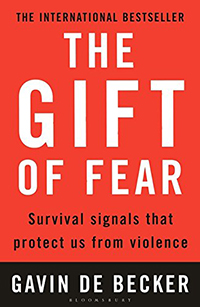
Another one would be either a simple multi-tool or a simple knife wherever the laws allow it. I think that the knives and the multi-tools are one of those things you never really realize, in a day, how much you needed one until you start carrying one around and how much easier they make life. They can be both used as a weapon but also their primary use is as a tool to open boxes, cut strings, and do silly things but they do become very useful in that respect. I also typically carry a light almost everywhere I go. Typically, I carry two lights. I have one of the little button cell lights that I have in my key chain. I also carry a smaller light in my pocket and a larger light in my bag. There are a lot of times throughout the day that you actually end up needing a light and you don’t have one, or it can be getting out of your car at night and maybe the area that you’re in is rather dark and you want to make sure that you understand all of the potential threats of what’s in the immediate area around you. The light can also be used as a weapon-if the listeners want to look up how that works, it’s Kubotan, around those arts are really what you’re looking for there. They are a great deterrent but they are not a fantastic deterrent such as an actual weapon but they are a great deterrent when dealing with hostile situations.
Would you recommend pepper spray?
Pepper spray is a good one. Pepper spray becomes tricky, I guess it’s a two-fold. If somebody carries a firearm and that is their only means of dealing with an issue-if all you have is a hammer, everything looks like a nail-and so, in that respect, pepper spray is a great alternative. However, pepper spray is very problematic. I have a lot of friends who are officers and they love to tell stories about accidentally macing themselves during violent encounters, or something happens and the mace goes off in the car and then everybody gets choked, or a lot of instances of someone attacking an officer, the officer spraying the person down, and at the moment, the pepper spray or mace being completely ineffective. A lot of interesting stories of officers just hosing somebody lies down because they’re being attacked and the person doesn’t react to the mace or pepper spray until after the confrontation is over so they are effective but they’re not a lightsaber. I guess, I would put it that way. I’m a big proponent of firearms so if you can and you’re inclined to then carry a firearm on a regular basis.
One of the biggest mistakes, I think, people make with that is, they carry a firearm when they feel unsafe and the problem is, with all things-this is about being prepared-bad things don’t call ahead and they don’t make appointments. Bad things happen on their own time tables. I had a friend, one day, who was telling me, “Yeah, I really want to get my gun license and all this other stuff so that when I go to places that are there kind of sketchy—“, and my questions were, (1) why are you going to places that are sketchy? The best way to win a fight is to not be there in the first place. And then, (2) If you’re going to do it, it needs to be carried every day. It needs to become an extension of you. You don’t know when something is going to happen but the biggest thing, and this is a huge thing for me, is, if someone is going to get involved with firearms or carrying firearms, they should seek out as much training as much time and money as they can afford to invest in it. Really, they should. People think merely the act of owning a firearm is enough and it’s not. It produces a really bad situation if you have no formal instruction with firearms. It’s a diminishing skill over time so not to beat that one up too much but I’m very passionate about that. When a lot of people buy guns and then never learn how to use them.
Yeah, that’s very dangerous. I mean, it’s a huge responsibility to own a firearm.
It is huge. When people ask me why I spend so much time training or end up spending so much money on perfecting and accurizing the weapons that I do have, I tell them it is not for the fight, it’s for the safety of any innocent bystanders who may be involved in the situation so I want to hit what I’m aiming at, not anybody else or anything else.
Yup. So, you mentioned a phone being crucial or some communications tool being a crucial component overall set of tools. If you’re out in the wilderness, you’re going to probably be out of the service area and you won’t get any bars. No signal means the phone is pretty much a brick, other than if you need to use a calculator, right? What do you recommend in that sort of scenario? Satellite phone or what?

So, in that scenario, if somebody can afford it, satellite phones are very great. There’s a lot of relatively inexpensive options now such as Spot and, I believe, there are a few others out now. A preemptive way to do this is to always have someone-if you’re going to go out into the wilderness-is either family or professionally, whom you’re supposed to check in with. You should always give them your plan of route and your itinerary so that someone knows that if they don’t hear from you by eight hours, something has gone wrong and a search party should be sent out to look for you. The best practice is not only to leave that information with a responsible family member-I do want to put that caveat in there, don’t give it to your idiot cousin who constantly loses their keys. You want to give it to a responsible friend or family member who is going to follow up on this. You also want to leave it with any sort of park rangers or anything like that. It’s not weird, they expect people to do it and they would appreciate people to do it. If something comes up, they want to find you right away. They don’t want to find your dead body four days later. That’s not fun for them so they’re more than happy to accept your itinerary and to expect you to check in at that point.
That’s the biggest one I would say. That’s kind of the point in a lot of ways of the phone itself-the ability to call for help. And then, there are the basics of-if you’re going to go out in the wilderness, take a basic wilderness course on how do you make signal fires and what do you do, the whole part around of staying put versus getting yourself more lost, how to signal from above, and things like that. Some other little trinkets to put in people’s pockets would be signal mirrors. Signal mirrors are really great. I actually keep one of those in my bag that I carry around with me every day. I don’t like to ever change out the things that are in that bag so even though I’m not typically from day-to-day out in the woods, I keep one in the bag and it’s always there as a basic set of tools. Another part of that “if somebody was going to go out into the woods,” would be the little emergency sleeping bags. They have it Mylar. They break that you can pack down as small as a wallet and you can get them a little bit larger too but they are super handy. The main things you’re trying to do in that instance are limit the amount of time that you are exposed to the elements and maintain body temperature—they are the big things you’d have to worry about while going out in the wilderness, waiting for the park ranger and Yogi Bear to show up and get you.
I’m just floored by the fact that they have sleeping bags that are down to the size of a wallet. That just blows my mind.
Yeah, they’re pretty neat. They’ve been around for a little while now. They’re made out of a reflective material called, Mylar, and essentially, what they do is reflect your body heat back in on you. They’re pretty neat. They use them in a lot of emergency situations. It’s great because even in the bag that I have-it’s a pretty small compact bag that I carry every day, I’m able to comfortably fit two of those bags. Since I have a fiancée now, I always double up on everything that I’m packing around with me. Weight and space become a big issue now because I’m always packing around for two people so I always look for the smallest, lightest stuff I can get my hands on.
Yup! If only we could have compact water-that would be really cool.
That would be just add water, right? That would be amazing because that’s one of the biggest things. I think, the way to get around that, especially if you’re going to go out into the wilderness, would be to invest in a water filter of some kind. They have them everywhere-anywhere from $25, to the kind of disposable little ones, to the $300-400 professional jobs that pack down pretty tight and then you make your own water.
Have you seen that Facebook-I guess, a Kickstarter video? It’s been all over on Facebook. It’s a water bottle that fills itself based on the moisture in the air?
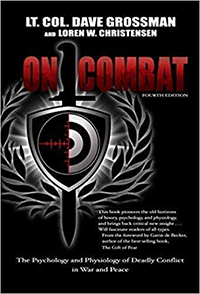
I’ve seen the ad for that and I meant to click through it and check it out the other day-it seemed rather interesting. I’m guessing it’s using, it looked like it used solar energy to create probably cooling coils or something to then, basically, act as a dehumidifier and make water. That was, from that from the five seconds, that I’ve looked at it, that’s what I was guessing how it was working but it was really, really fascinating. Now, that you’ve mentioned it, I need to make myself and note to go look at it again.
As a prepper, I really think you need one.
Well, I think that, as a prepper-as kind of a side note-it is so easy, just as if somebody got into photography or a lot of these other things, it’s so easy to become obsessed with gear. I jokingly like to call that people who wind up with piles of “prepper poo,” which are just all these mounds of gear, cool toys, and stuff that, half the time, we don’t take out of the package. I still have an actual stove that I have purchased. It’s a BioLite that I’ve never even taken out of the box. I don’t want to take it out of the box now. It’s becoming a running joke because I think, I’ve had the thing for four years and I’ve never taken it out of the original packaging.
It’s like an action figure that a collector just doesn’t want to ruin.
Yes!
That’s funny! What about like, credit card knives, tactical pens, and those sort of things that you see on sites like Survival Life and so forth and advertised everywhere?
Yeah. Credit card knives are problematic. We mentioned Neil in the beginning and actually, Neil accidentally walked through airport security with one of those one time and it became a massive issue-that, from a practical sense, is why I don’t like credit card knives. They’re too easy to forget that you have them on you and if you’re somebody that travels, even once a year, it’s super easy to end up getting some sort of body cavity search from TSA so l don’t, that’s not what happened to Neil but he did get pretty well harassed. Those I don’t like. I do like tactical pens quite a bit. Just like firearms or anything else, they do you take some level of experience and training-not a whole lot and there’s a lot of really great information out there on how to use them. If you can find a martial arts school or something in the area that actually teaches how to use them is even better because they are great. I don’t carry one that often anymore. I have one in my bag that I just use as a pen but my understanding is, they’re very easy to go through airport security with. The few people I know that do really carry them and that’s their main go-to thing don’t run into airport security problems with them so that’s one of the reasons I like them as an alternative to other methods and any other weapons.
For those people who are unfamiliar with tactical pens, let’s define them so that everybody knows what we’re talking about.
So, a tactical pen, for all intents and purposes, is just like any other regular pen. The differences are, instead of being made out of plastic or very thin metals, they’re made out of heavier metals. The construction itself is heavier. They’re going to have a little more weight to them. They’re probably going to be pointy at one end or both but not so pointy that you could stab someone. I mean, with enough force you could but they’re not intended to stab someone to death. They’re intended for you to jab into soft pressure points of the body such as the eyes, the throat, the temples, and various other pressure points on the body like, the solar plexus and things like that. Most of the better tactical pens are strong enough that you could actually hammer one through a block of ice. I’ve seen some of them that are hammered through 2×4’s. They’re very, very sturdy and at the end of the day, they are also a writing implement so that’s a tactical pen in a nutshell.
Right. And I’ve seen ones that have, I don’t know, something on the other end that looks like teeth and they’re kind of a circle that can be used to take a chunk out of somebody’s flesh?
Yeah! There are a few different designs and varieties out there. I’m not a tactical pen expert but I’ve definitely looked at a lot of them over the years but they’re not my big thing. If it’s interesting to somebody, there are a ton of styles out there that do different things-some of them have glass breakers; some of them, like you’re saying, have teeth to take a chunk out of somebody’s skin; some of them are just blunt on one end and pointy on the other end and you just jab as hard as you can and as fast you can in the other person.
Sounds like fun! Let’s talk about self-defense skills-what would you recommend for people who are really unfamiliar with martial arts and any kind of self-defense techniques? How will they get started? How much training would they need in order to be able to realistically defend themselves in the scenario on the street?
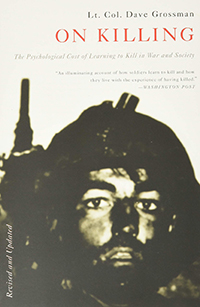
That is a big question. It seems like it wouldn’t be but it actually is. I, personally, studied Jiu-jitsu and Thai-Jiu-Jitsu for many years. I’m terrible at it, by the way, and most people are-that is the problem with a lot of martial arts that are out there, especially when you get into like the Japanese martial arts. You can get some moves pretty quick with it but to really become good at it, most of them require a lot of time, a lot of energy, a lot of study, and a tremendous amount of repetition. An example, I like to go to often with Japanese Jiu-Jitsu is, there is a technique that translates to the seven-year technique and it’s because that’s how long it takes to master. It looks like a very simple thing and it’s really not. That becomes the problem with a lot of martial arts so anything that can get you up to speed quickly and that tends to be things like Krav Maga or other martial arts that are intended and designed to be taught quickly, that have fast violence of action, that are simple to learn, simple to repeat, that are not delicate-you know like, Aikido moves or Jiu-Jitsu moves-they’re gross motor skills and they are not something that requires a whole lot but that is kind of the direction I steer people in-unless they’re somebody who really is into martial arts or really takes an interest in it.
If it’s something that really interests you and it’s something you’re going to spend a lot of time with, I would say-and you should do this no matter what school you go to-is visit the school. Go watch-go watch once or twice, talk to the instructor, read some online reviews, make sure that it’s not only the right martial arts style but that, it’s the right school for you. Brazilian Jiu-Jitsu and mixed martial arts schools are all the rage right now, I’m not a huge fan of them. I find that they tend to be a lot of sweaty guys who just want to beat the snot out of each other, who are that are looking to be part of Fight Club-that’s not true of all schools, of course, but that tends to be a lot of what I’ve seen. When I work out and when I study martial arts, that’s not what I would want. I’m not looking to get hurt. I’m looking to learn a skill and hone a skill but to each their own and so to that I would say, the best thing somebody can do is kind of research what’s in their area-go study, go study the school you’re looking at, watch them a few times, and see if it’s something that really does interest you. That’s kind of where I would start with martial arts.
Right. Actually, I had a little bit of experience with something called, Target Focus Training or TFT. I wouldn’t call it a martial art-it’s definitely self-defense but the way it’s done is in slow motion so you’re given these skills to really, basically, wreck somebody’s biology pretty quickly. In a case of where somebody’s gone asocial so they talk about the difference between antisocial and asocial behavior and being able to recognize a threat that’s an asocial threat and respond appropriately. I was at this Tony Robbins Platinum Partnership trip. It was really cool-the men get to do target focus training every morning while the women did pole dancing.
That’s a lot of fun!
Yeah, so the Target Focus Training is something that really interested me but I never ended up taking any further courses in it. Have you heard of it? Do you have any experience with it?
I have no experience with it but I have heard of it. I think the founder’s name is Tim-I’ve forgotten his last name.
Larkin.
Tim Larkin, yeah! He comes pretty highly-recommended by a lot of people whom I trust and know. The little bit of knowledge I do have about what he teaches is-and it’s always struck me as being very similar to Krav Maga-the movements are simple, they’re easy to learn, it’s very principle-based, it’s intended to be learned quickly, and implemented, again, with the very fast violence of action. I can’t recommend it or say anything bad about it, I do know that a few people I know respect him and respect what he’s done and built so, if somebody is looking for something simple, it would certainly seem like a good option.
Yeah, but the limited amount of time that I spent with it was probably about four hours total. I was impressed.
Yeah.
Speaking of skills and knowledge, generally, I think one of the most important resources for people is their resourcefulness. Tony Robbins actually says this recently, “Your best resource is resourcefulness.” I totally believe it and I think one of the best skills that you can have is the willingness and just openness to learn new skills and to kind of reverse engineer a situation around. So, when I bought my first car, I was seventeen years old and I bought a car that was going to get junked by a friend of mine in school. He’s going to get $65 from the junkyard so I was like, “Can I buy it for $65?” and he was like, “Sure!” and I had to scrounge an alternator out of a junkyard, replace it myself, and so, in order to afford this car because I don’t have any money at the time so having that kind of skill to just kind of figure out-it’s not even really a skill-it’s just a willingness.
One of the best skills that you can have is the willingness and just openness to learn new skills and to kind of reverse engineer a situation around. Click To TweetIt’s a willingness, yeah, and a natural curiosity. I like to refer to it as “grit.”
Yeah.
And tenacity.
So, how would you recommend somebody develop that?
I guess the simple answer to that is-I guess I could tell a little story. Actually, it’s a story I’ve used to help a friend recently in a discussion about having and building grit. When I was young, I was a big, open-water distance swimmer. Every year, I would enter a three-mile, open-water, swimming competition. Adults and kids could engage in it and after-when did I start? I think I was about 12 or 13-I was 12 the first year I swim. The first year, I swam but I didn’t win but I won every year after that for the next five years. If you’ve done any open-water swimming, it’s very exhausting and it’s very soul-crushing so, the trick that I would use and the way I would beat out most of the adults is whenever I was tired, I would always and start to the thought of quitting would creep in, I would always say to myself, “Okay, fine, you can quit but just swim ten more yards, or 25 more yards,” and I would just keep doing that until I had gotten all the way through. You may be thinking like, “Okay, well, in swimming, if you get too tired to continue moving, you can drown.” True-that is a life or death situation.
However, there was a canoe right next to me with two lifeguards on it so at no point was I ever going to die-and that, in most instances in life, is true. You’re not going to die by continuing to do and going through most of these adventures, no matter how hard they are. I think Neil used to joke with me about making phone calls because a lot of people will have this high anxiety around phone calls-making phone calls to total strangers. Neil would always tell people that they’re not going to reach through the phone and slap you, the worst they can do is say no and hang up on you, maybe call you some names and that’s it. The same thing is true in most instances in life. You have nothing to lose, really, by going-just say, when you get tired and you want to give up on something, say “ten more yards,” “25 more yards,” “100 more yards,” and then I can quit and then, each time you reach that next goal, you have to realize that you met that next goal so maybe you can go another ten yards or 100 yards and you just keep doing that until you finish. I guess that would be the best answer I could possibly give to how somebody would really develop grit, tenacity, and the ability to stick with things. Because things-they get hard and they get boring but if it’s important, it’s worth doing.
Yup, yeah.
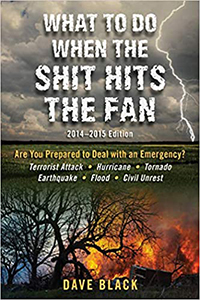
Like you. You sounded like you ended up with the vehicle at the end of that—
I did! It was a ‘76 Ford Granada! It was a huge boat.
A yacht! But at the end of it, not only did you have a car, you also had the skills now to-and the intimate understanding of that vehicle-be able to repair anything that went wrong with it.
Yeah.
So, there was there were two benefits out of that story and I think, that’s kind of the big takeaway there too.
Right, and I was never afraid to just kind of tinker and figure things out. I love that aspect of my personality because it gives me so much versatility and ability to just figure things out. Like, I want to have satellite TV-it was 1991 or 1992-
Uh-huh.
It’s very early days-I didn’t have money at the time, I had kids, and both me and my wife at the time were going through school, and all we could do was just to afford food so, getting a satellite dish that was brand new was totally out of the question but I read online back in those days where they didn’t have the Web so, I found on Usenet an FAQ or frequently asked questions on how to scrounge a satellite. I ended up finding a satellite dish for free that was one of the big, solid ones-a massive, ten-footer-for free that somebody is going to throw out because they got a wire, mesh one. I found a satellite receiver for like, $20 that somebody was going to throw out because they would replace their receiver. Before I knew it, I was out in the yard, pouring concrete, putting a pipe in, and putting this massive dish up.
Yeah.
It looked really ridiculous. We were in this row of houses. The only one with this massive dish in this tiny little yard.
Yeah.
But I loved being able to watch TV like, TV in French and so, I was teaching my kids French and they could watch cartoons in French and stuff because of that satellite dish. It’s just-it’s so valuable to have that tenacity and desire to just tinker and figure stuff out.
I think it’s people have to-and I think, this is becoming an increasing problem, not that we’re going to delve into societal problems today but I think, a big issue that we run into is people are terrified of (A) looking foolish and (B) failure. Like you were saying a moment ago with having this big dish, no one else had one, and it looked ridiculous, and all that-there is a sense of looking foolish in front of our peers but there’s also the people who had this sense of failure. I run into this a lot-whether I’m working on marketing campaigns or product specking a piece of software helping out. People have a tendency that as soon as you say, “I have this idea,” and you tell them the elevator pitch for the idea, the first thing that they want to do is find all the reasons why it would never work instead of saying, “I see these roadblocks, how can we go around them? Or, over them? Or, through them?” People are so scared of failure that they will immediately make up reasons that they shouldn’t do it to begin with just to avoid that sense of failure, I think.
Yeah. So, let’s circle back to tools and just preparedness-type of things. I want to cover a couple more things before we close out the episode. Let’s talk about “bug-out bags’ and “burn bags.” What exactly are these things? Which go in them? Do you even need one?
So, “burn bags” are, essentially, anything you don’t want anyone else to find, I guess, is the simple term It can be everything from a formal burn bag-like, if you were working for the CIA or something like that, that you might have but it could be as simple as a fire in the barbecue pit outside and a grocery bag full of whatever it is you don’t want people to find. The idea of a “burn bag” is kind of like a shredder on steroids. As we saw with like Enron and things like that, there are machines and people that can take your shredded materials and put them back together again. You know, just about anything is possible if somebody with enough desire and tenacity goes after it so shredding is not always the best option so in that instance, you want to completely destroy it by loading things into a bag and burning it out. The topic can get more complicated than that but I think, in a nutshell, for most people, that’s kind of where that goes.

“Bug-out bags” are a big topic and they are the first thing that people have a tendency to get into when they get into preparedness. I’m not a huge fan of bug-out bags and that’s almost like sacrilege to say in the preparedness world. I’m really not and I’m not because people obsess over them. People get into it and it becomes this weird obsession that they’re trying to build the perfect Zombie apocalypse bag and they want to throw the kitchen sink into it. You’ll have somebody building out like this 8,000-lb. bag that they’ve invested thousands of dollars and God knows how much time in trying to have every last piece of gear for every known scenario that could possibly and even impossibly happen and most of the time, they’re not in the kind of physical condition required to even carry that bag down the block. So, what I always tell people is: Focus on the absolute basics first when building a bag-24-72 hours worth of clothing, a basic hygiene kit, whatever medications you need on a daily basis, a personal information pack, which is either in the form of a physical pack or on a USB key and just a collection of all your most important documents like, life insurance papers, deeds to homes, things like that, papers that you can’t easily replace.
Like, I have certain weapons that had to be registered with the ATF and even the ATF themselves can never replace that paperwork that they gave me so, I have to keep all kinds of copies of that. I keep lots and lots of copies of that stuff. Those are the kinds of things that go in an information packet and that information packet goes in a bug-out bag. From there, a way to make or procure water and also, some sort of sustenance or some sort of food stuff-there’s a lot of really cool dehydrated stuff out on the market now. There’s also C-rations like, you’re out to sea on a sailboat sea and you can get 72-hours of food packed down into a brick that’s about the size of a softball that are actually not that bad-they taste like kind of a little almond, coconut cookie. I have actually survived three days on one of those back before so it’s not horrible. It’s not a steak but that’s not bad. So, that would be kind of where I would stop with it and tell people that once they’ve established a basic bag like that, put it down, walk away, and don’t mess with it anymore because otherwise, it becomes like I was saying before, this obsession of trying to turn it into this 8,000-lb. bag that has all kinds of nonsensical stuff in it. My thinking is, someone should then move on and focus on other aspects of their preparedness and their resiliency and once all that other stuff is squared away, if they really want an apocalypse bag, come back to it again later.
For people that aren’t familiar with what is a bug-out bag-a bug-out bag is just like it sounds like-bugging out is a military term. It’s essentially-if, for any reason, you need to pack up and get out of a house in say, ten minutes or less, even down to say, 30 seconds, you could do it by grabbing that bag and walking out the door, getting in your vehicle, or walking away from wherever you are. Some people think, “Why do you need that? The zombies are not going to march tomorrow!” True, but your house could burn down and in a house fire, the last thing you want to do is, the only things you have with you are your pajamas and a lack of dignity. That’s not fun whereas, in a fire, you have quick access to this bag, which is another kind of cabbie out there that people should always make sure they have quick access to and something they can just pick up and walk out of the house with. Once you’ve got that established, go on, and do more with it. I’m a big fan of “get-home” bags and “get-home” bags are similar to “bug-out” bags but they go in cars or they go with you wherever you are every day. The idea behind a “get-home” bag is that, most likely, you need to get home to hunker down, you don’t need to leave your home in some sort of mad dash that red dawn is happening all around you. I keep a fairly-extensive kit in my vehicle that is constrained to the size of a normal-size backpack-that’s kind of how I keep myself from going nuts with it and it carries the essentials: tennis shoes, socks, a change of clothes, extra water, a basic hygiene kit, and things like that. If for some reason, I had to walk home from someplace then I have 24 hours worth of supplies on me that I could manage the track. It wouldn’t be amazing, it wouldn’t be great, and it wouldn’t be a fun hike in the woods but I could get through the experience without death or injury.
Right.

I’m a bigger fan of that and I also carry a small bag with me every day that has a similar set of things-it has a copy of that information packet; it has a set of basic tools like an extra knife, an extra multi-tool, and an extra magazine for my gun; some important papers that I want ready-access to, and a very basic medical care.
Yup, and do you have like, a LifeStraw or something that can take non-potable water make it potable?
No, I have an MSR SweetWater so I prefer those. The LifeStraw’s are okay for what they are. They’re great in a pinch, they’re cheap, and one of the nice parts about them is that they don’t take up much space. They are very inexpensive. I think they’re like, $20 and for like 20 blocks-they’re about the size of one of the larger Sharpie markers-and they can be thrown in a whole bunch of bags so they’re not horrible. They’re not amazing but they’re not horrible. The SweetWater’s, when I carry in my truck, but I also carry a Sawyer water filter, which is an upgrade to the LifeStraw. They’re pretty heavy-duty, actually, for what they are and their cost, I want to say, they are $35-40 so they’re very approachable for most people.
So, any kind of resources that you would recommend for our listeners-including apps for an iPhone or Android, any books, or online courses? What would be some essential resources for our listeners?
For some essential resources, I would say, books are amazing. I have a huge library, personally, so coming up with a list of books was actually kind of tough because I have so many favorites. However, before really diving into books, I would recommend that people check out CERT-C-E-R-T. It is a pretty great eight-week course put on by FEMA or Federal Emergency Management Agency. They will not turn you into Jason Bourne but what they will do is give you the basic skills in search and rescue and in medical for you to become a help rather than a hindrance in a disaster. It’s actually a pretty neat course. I just think people often venture into it thinking that the course is going to turn them into some sort of superhero and it’s really not. I mean, there’s only so much that can be covered in a once-a-week, eight-week course but it’s definitely a great launchpad for a lot of people. You know, you already paid for it through your tax dollars so you might as well take advantage of the training-it’s there. The next thing I would say is CAP, which is Civil Air Patrol. It’s a little known organization-they are an auxiliary of the United States Air Force and they work in conjunction often with CERT.
A lot of what they do is search and rescue and all kinds of other things. They have a truly fascinating history and, again, it’s also a free resource. They have all sorts of courses you can take where you can become certified in things and then become a volunteer within their organization. It’s really neat. I couldn’t do it justice in a 30-second spot about what all they do. Of course, another super simple one is Red Cross or the American Heart Association-just go take a one-day CPR First Aid class. I’m particularly fond of the ones that also do child and infant medical-emergency medical information is included in those. They also teach how to use their A.D’s or the automatic defibrillating units, which are everywhere now or good. So, those are the low-cost, low-barrier entry courses I would recommend people to take.
There are all kinds of other things like Spy Escape and Evasion school and things like that, which you can start spending money to get into, but before you do that, I would recommend those three or all or one of those three free resources. As far as apps, oddly enough, as a massive geek myself, I don’t really keep that many apps on my phone. One that I do like is iTriage. It’s a pretty interesting medical emergency app. It’s no supplement for training and experience but in a pinch, it’s definitely a helpful resource. I also keep a Morse code, which is kind of weird but I keep a Morse code app on my phone. It’s the one thing-dealing with ham radio-that I have yet to be able to memorize and it’s one of those things that I can’t think of a perfect to use for it but I just have a feeling that one day I may need to tap out an emergency message to somebody else so I keep that on my phone. Let’s see, for books, man, this was tough but I narrowed it down so I would start with The Gift of Fear by Gavin de Becker.
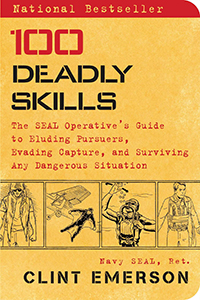
I didn’t like the writing of the book but the message behind the book is really quite fascinating. It illustrates the need for situational awareness, which is for people to be aware of the things going on around them and to not have their heads buried in their cellphones while they’re out and about in the world, and also to trust your instincts. A lot of what the book illustrates is people ignoring their instincts and then disaster-a pretty, horrific disaster-ensues. The next book I would recommend would be 98.6 Degrees by Cody Lundin. People may know him from the National Geographic TV show that was out for a while that had a bit of drama around it but Cody is the real deal and he’s a pretty cool guy. He’s got several books out but I would start with 98.6 Degrees. The next two I would recommend are: On Combat and On Killing by Lieutenant Dave Grossman. Those are two separate books. They illustrate a lot of the mindset and the aftermath, what happens to your mind, after a violent encounter. It’s best to kind of know in advance if you can’t experience it but to know in advance what to expect for how your body and mind-particularly, your mind-will react to violent encounters.
At some point in our lives, almost everyone ever is going to be faced with this. Another book is What to Do When the Shit Hits the Fan by Dave Black. It’s a pretty good book. A funny, very cheeky, well-written, well-illustrated book by a woman I’m quite fond of-her name is Lauren Wilson. She’s a great author, a kind of a cheeky, little monkey, and an amazing chef. She wrote the book The Art of Eating Through the Zombie Apocalypse. Basically, she took her culinary skills and broke down what would happen on a day-to-day basis during the zombie apocalypse, what food items you’re likely to find, and how to prepare those as tasty treats in the zombie apocalypse. It’s also filled with all kinds of cool, little survival tips and forging tips. The next one up is a new book that just came out, The Idiot’s Guide to Foraging by Mark Vorderbruggen. Mark is a chemist by trade during his day job but he also happens to be an expert wilderness forger and an all-around, really cool guy. So, those would be my resource tips in a nutshell.
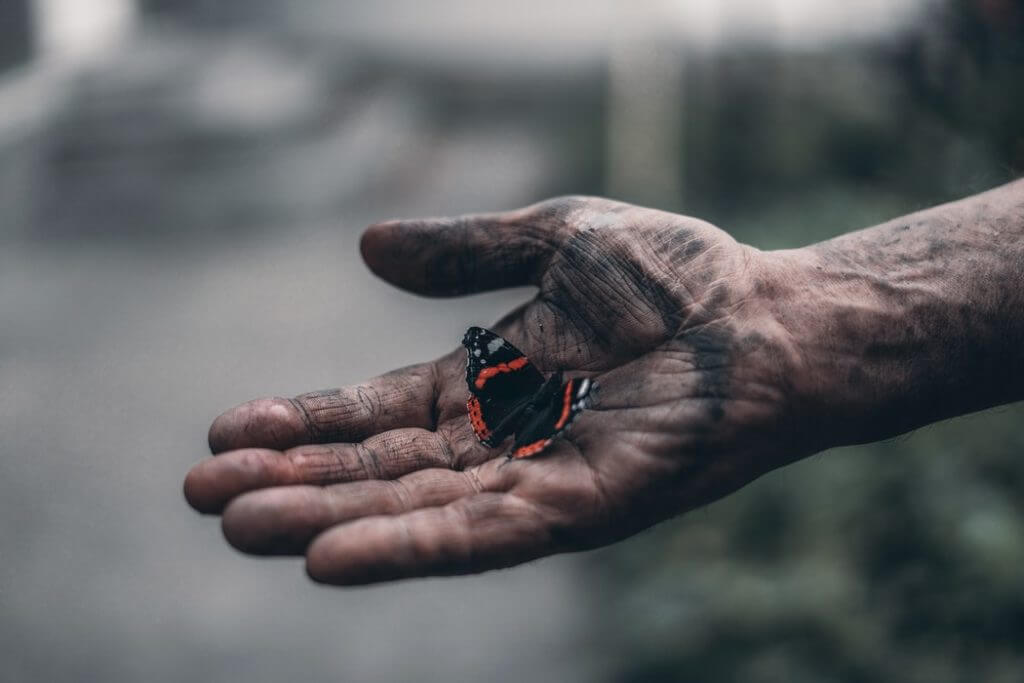
Wow, it’s great! Did you include Emergency in the list?
Oh, I am such a bad, former sidekick! I suck! I’m totally going to get a nasty phone call from Neil now or a text message or something. Emergency-I would definitely recommend Emergency. The great thing about Neil’s writing is that, he will deliver knowledge of skills and everything else through an amazing ability to tell a fascinating story. I would definitely recommend Emergency.
Yup, yup! For sure! What do you think of The Worst-Case Scenario Survival Handbook?
That one, I don’t have. I haven’t had a chance to read it yet so I can’t really say one way or the other about it.
It’s kind of fun. I mean, on the front cover, it says like, “How to escape from quicksand? How to wrestle an alligator? How to break down a door? How to land a plane?”
I’ve seen it! Yeah, there’s a couple out there now that have recently come out. It’s definitely catchy. There’s another one-100 Deadly Skills by a former Navy Seal that I know a lot of people who have been enjoying it, I just haven’t had time to really check them out lately.
Yeah! Okay, last question-what would be a really fun, immersive experience for people who want to just kind of feel what it’s like to go through, I don’t know, the zombie apocalypse or some sort of crazy scenario? I know there are escape rooms. I know there are actually zombie apocalypse-type of immersive experiences. There is one I’ve heard about in Atlanta-I think the website for that is AtlantaZombie.com. I’ve heard that’s amazing. You’re outfitted with paint guns and you’re in this huge area-it’s kind of an abandoned area-with a gas station, a storefront, and everything, then you’ve got all the zombies coming after you. So, any kind of fun, immersive experiences that you’d recommend?
I am going to fail you here, Stephan. I actually don’t have any-I think there’s a few schools and I know you’re familiar with one of them. Another one would be Spy Escape and Evasion, where they’ll put you through a few days of training and then they chase you around the city and you have to evade bounty hunters and craziness of that sort so that’s pretty neat. And then-what is the other one that does something similar? onPoint Tactical, I think, is their name. I’m not super familiar with them but I know they do something similar. Now, there’s a school down here in Texas, in San Antonio, called The Human Path. They also offer a five-day course that is more wilderness-oriented. They used to do a full-on zombie apocalypse kind of a “ranger school-esque,” immersive environment. The head of the school is a former Army Green Beret and they would do stuff where they locked it down and, basically, you’re on a media lockdown for two weeks leading up to it and you could only watch their pre-recorded zombie apocalypse news releases and radio programs. I mean, it was fully-immersive and they would take you, but they ended up having to stop doing it. They may key it up in another year or two just because he-I know the owner of the school-he said it would take him three months to recover from this week-long thing just putting it on so it was pretty intense but those are the only immersives that I’m aware of. I’m sure there’s more of them out there though.

Yeah, but what about like shooting Uzis and things like that? I think there are some shooting ranges in the Las Vegas area, for example, where you can shoot all sorts of high-powered weapons and things?
Yeah, definitely! So, there are several—I’m not super familiar with the ones that are outside my immediate area but I do you know the guys at Death Valley Magazine put on a shooting course at a big range out there. It’s also the same range that you can go to. There is a guy by the name of Jim Fuller and I have just forgotten the name of his company but you can go to his school, take a class, build an AK-47 from scratch, and then they put you through the paces of actually learning how to use it so you don’t just learn how to use it, you also learn how to build one from scratch. It’s pretty amazing. And then, what else is out there? We’ve got Thunder Ranch and we’ve got a bunch of other really great schools out there. I think the best thing for that is if people do some searches and find but there’s a lot of really great schools out there but anytime-and I want to make this big warning-anytime you’re searching for a gun school or anything like that, read the reviews, check out, and make sure that they are a long-standing established schools because you are dealing with dangerous, dangerous weapons and things can go wrong so you want to make sure that they have a good track record of safety and security.
Yeah, and you mentioned earlier in the episode onPoint Tactical. They have an urban escape and evasion class, I believe, right?
Mm-hmm, yeah.
Yup. We’ll really wrap up here but just one point I’ll add here to the conversation: I had this amazing experience at one of Neil Strauss’ Intensives so I have been in his secret society for the last five years and it’s been amazing. In one of the intensives that’s still my favorite was the urban escape and evasion one. It was so fun! We basically learned how to break out of zip ties and break out of handcuffs like, pick the handcuff locks, pick padlocks, pick door locks, and start cars with jiggler keys. On the last day of that intensive, we were kidnapped, hooded, and handcuffed into the inside of a serial killer van-one of these white, windowless vans-and we had to escape out of the van, make her way across town without ID, without any kind of currency or credits, nothing. We just basically use our social engineering skills to bum rides, to get cash, and we had to evade bounty hunters who were after us the whole time and my team of three came in first out of like, 18 different groups so that was a lot of fun. That was amazing!
Yeah, it’s a neat experience and it was funny being on the other side of that as a social experiment and watching everybody run around and doing that, and watching the different groups rat each other out-kind of like tripping someone in the zombie apocalypse? It was pretty funny to watch!
Yeah, What a trip! So, if you can ever have an experience like that-any of you, listeners-just jump at the chance. It’s a lot of fun! All right, so this was a really fun episode. Thank you, Aaron, for joining us and for dropping all these great nuggets of wisdom and advice on preparing for just potential scenarios that we should all be prepared for so thanks again!
My pleasure! Thank you for having me on, Stephan!
Important Links
Checklist of Actionable Takeaways










 About Aaron Hagedorn
About Aaron Hagedorn
Aaron Hagedorn is the host of In The Rabbit Hole, a weekly, humor-filled survivalist podcast that makes survival sane and approachable. He’s the former professional sidekick and marketing director to eight-time bestselling author, Neil Strauss.
LOVED THIS EPISODE
Please consider leaving me a review with Apple, Google or Spotify! It'll help folks discover this show and hopefully we can change more lives!
Rate and Review







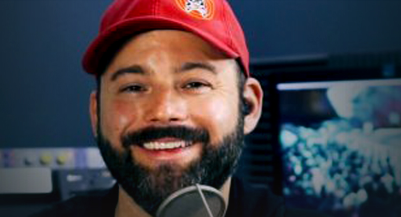
 About Aaron Hagedorn
About Aaron Hagedorn











